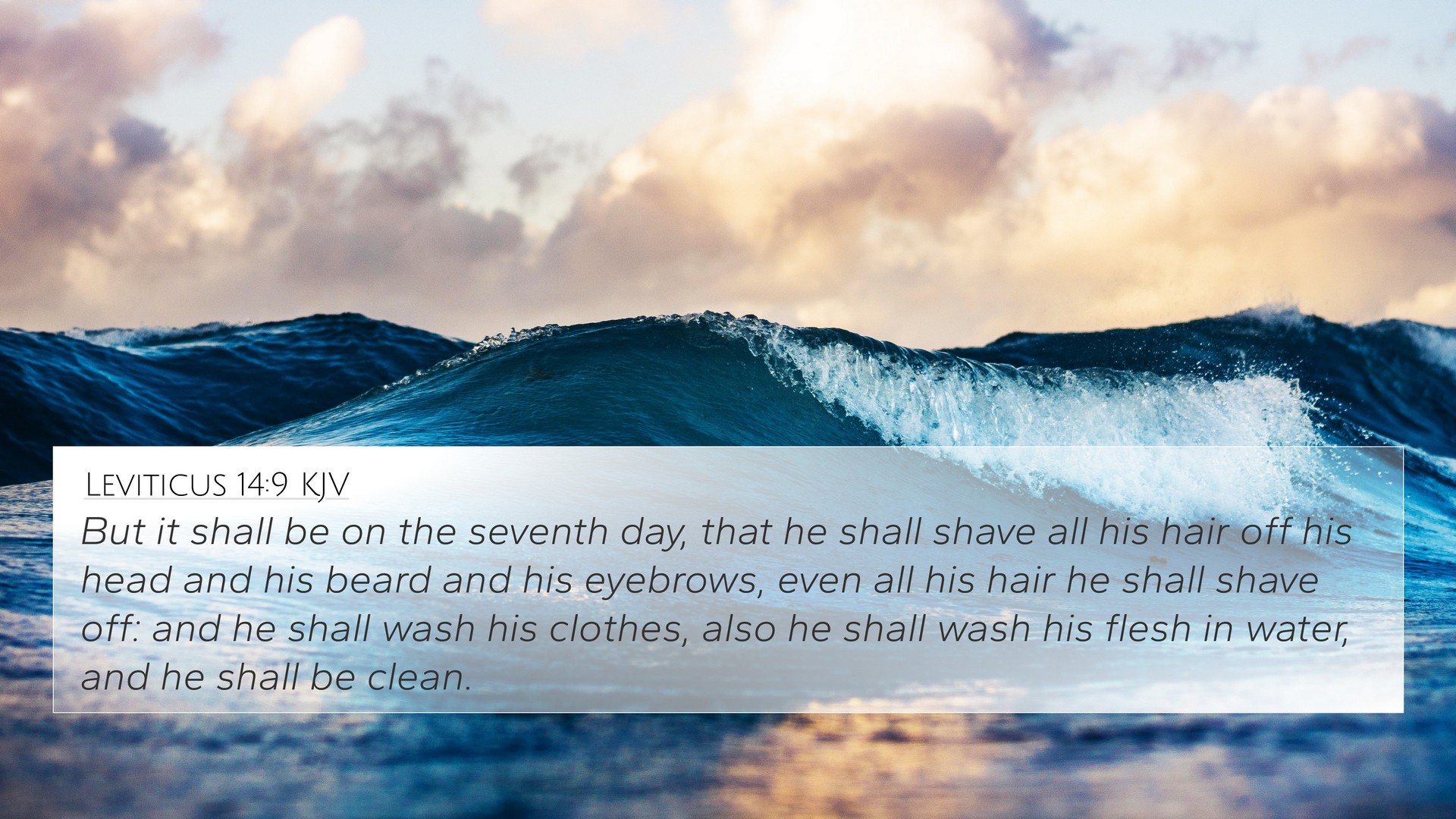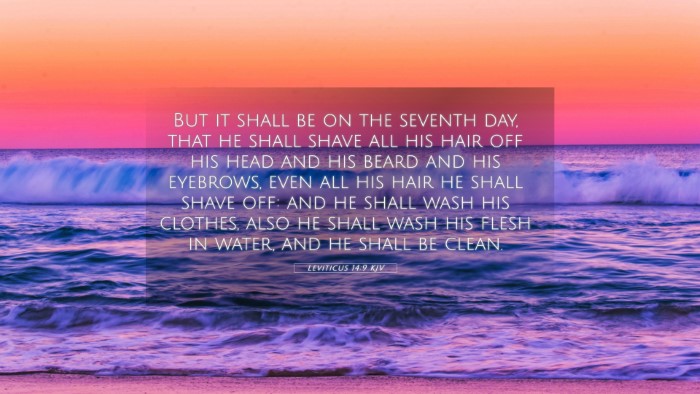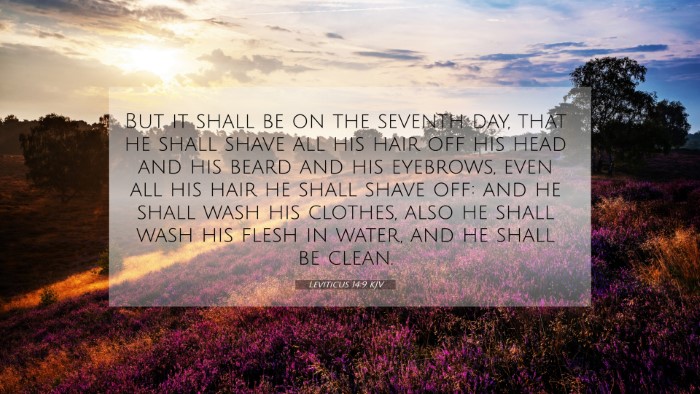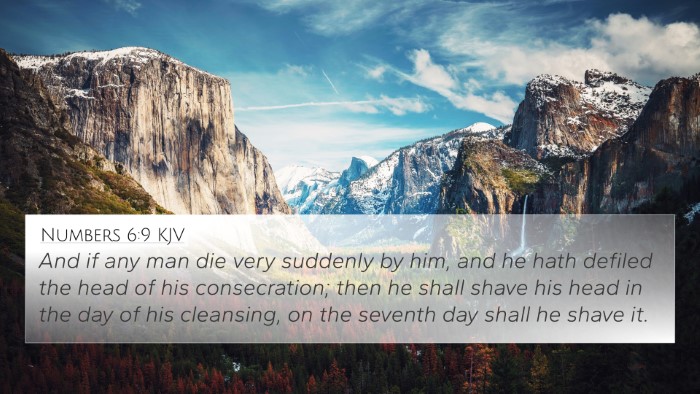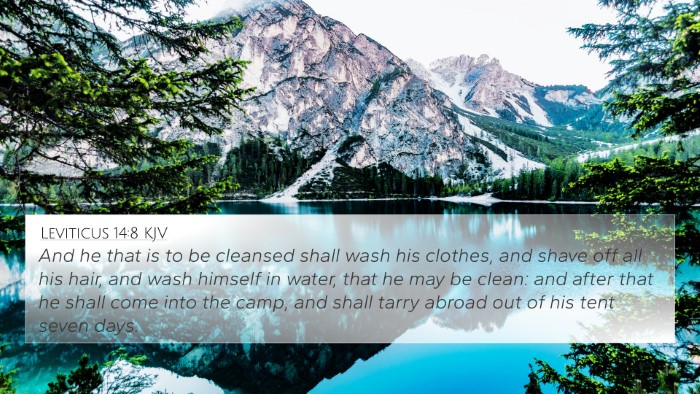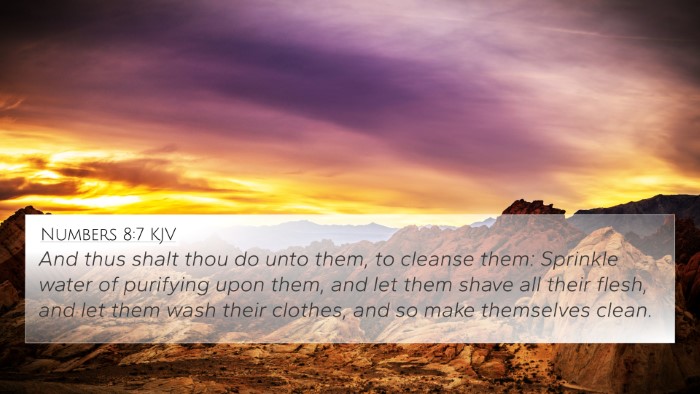Understanding Leviticus 14:9
Leviticus 14:9 states: “But it shall be on the seventh day that he shall shave all his hair; he shall shave his head and his beard and the eyebrows of his eyes, all his hair he shall shave off; and he shall wash his clothes and bathe his body in water, and he shall be clean. After that he may come into the camp, and shall stay outside his tent seven days.” This verse is part of the ceremonial law given to Israel concerning the cleansing of leprosy, a serious and isolating skin disease. Below is a summary of insights drawn from public domain commentaries to explain its significance and meaning.
Summary of Biblical and Theological Insights
In Leviticus 14, the comprehensive rites of purification are detailed for those afflicted with leprosy. The process was pivotal in the ancient Israelite community, as it ensured that those who had been deemed unclean due to disease could once again be integrated back into society.
Matthew Henry's Commentary
Matthew Henry emphasizes the importance of cleanliness and the rituals associated with it. He notes that the act of shaving all hair symbolizes a complete renewal and a significant change in the status of the person who has been healed. The shaving represents the cleansing from the old state of health, marking the transition to a new beginning. The washing of clothes and bathing signifies not just physical cleanliness but a spiritual readiness to participate again in community life.
Albert Barnes' Notes
Albert Barnes highlights the significance of the seventh day as a day of completion and rest, which reflects the Hebrew understanding of time and God's creative order. By depicting a thorough and exhaustive purification process, the priest declares the former leper clean and acceptable before God and the community. Moreover, this cleansing ritual reflects the overarching themes of holiness and separation, characterizing Israel's relationship with God.
Adam Clarke's Commentary
Adam Clarke discusses the practical implications of this verse, noting that the outward act of shaving and washing signifies a deeper moral and spiritual purity. He contextualizes this within the narrative of Israel’s covenant with God, where physical disfigurement (like leprosy) not only represented illness but also a state of sin. Thus, the act of purification was about restoration – not just of health but of one’s place within the covenant community.
Cross-References to Leviticus 14:9
- Leviticus 13:45-46 - Outlines the unclean status of a leper and the social implications.
- Numbers 12:10-15 - Describes Miriam’s leprosy and the associated purification rituals.
- Matthew 8:2-4 - Jesus healing a leper and instructing him to present himself to the priest.
- Luke 17:12-14 - The ten lepers healed by Jesus, highlighting the importance of the priest's role.
- 1 Peter 2:9 - Discusses the chosen people who are called to be holy and set apart.
- Hebrews 13:12 - References Jesus suffering outside the gate, paralleling the concept of purification.
- Psalms 51:7 - The Psalmist speaks about being made clean, resonating with themes of purification.
Thematic Connections and Reflections
The themes present in Leviticus 14:9 can be connected to broader biblical notions of sin, redemption, and restoration. The narrative of leprosy serves as a metaphor for sin itself, illustrating how separation from the community symbolizes estrangement from God. The intricate rituals emphasize God’s desire for holiness among His people, reinforcing the call for believers today to pursue purity.
Conclusion
In summary, Leviticus 14:9 provides essential insights into the process of spiritual and physical restoration within the community of Israel. By applying practical and theological understanding from Matthew Henry, Albert Barnes, and Adam Clarke, readers may find deeper meaning behind the purification rituals and their implications for understanding purity in both the Old and New Testaments. Engaging in cross-referencing such as this will enrich individual Bible studies and deepen one’s grasp of the Scriptural narrative.
